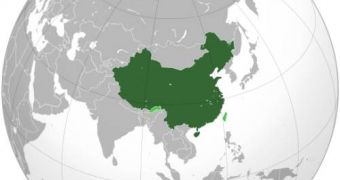Chinese authorities have recently reported that the city of Ziketan has been sealed off from the rest of the world, after two people died of pneumonic plague. Ten other individuals, who are thought to have made contact with the victims, were also quarantined, and are kept under close observation by health officials. The Health Ministry announced that the block would stay in effect until the root cause of the infection, as well as its source, were discovered and understood. The pathogen that prompted the shut-down is thought to be the pneumonic plague.
The World Health Organization (WHO) said, through its representatives, that, while the situation was indeed regrettable, this was nothing new, and outbreaks of the agent occurred regularly. The bacterial strain that causes the condition is named Yersinia pestis and carries a massive fatality percentage, if not caught and treated in the nick of time. Though, in most cases, the condition derives from original bubonic infestation, it may occur when people inhale infective droplets. The unfortunate thing about the disease is that it does not require human contact, or fleas and rats, in order to transmit itself from person to person, Reuters informs.
“This is not new. There have been sporadic cases reported over the years. We're not surprised that it's come up. We're in constant contact with the authorities to make sure things are under control,” Vivian Tan, a spokeswoman for the Who who is based in Beijing, reported. The Asian country experiences such outbreaks on a regular basis, as the virus gets spread by rodents and fleas. After it becomes airborne, it is very difficult to contain, and therefore quarantine measures have to be deployed with the utmost efficiency, if the casualty rate is to be kept in check. Ziketan is located in an ethnically Tibetan region, inside the western Qinghai province.
“There's no possibility of it spreading. We have already closed off the infected area. We are currently treating those who are sick,” an unnamed health official, from the Qinghai government health department, said. The country is lucky, some experts add, because most infections occur in remote areas, which make containing them possible. If they were to appear in Shanghai, Hong Kong, or Beijing, the impact would be disastrous.

 14 DAY TRIAL //
14 DAY TRIAL //